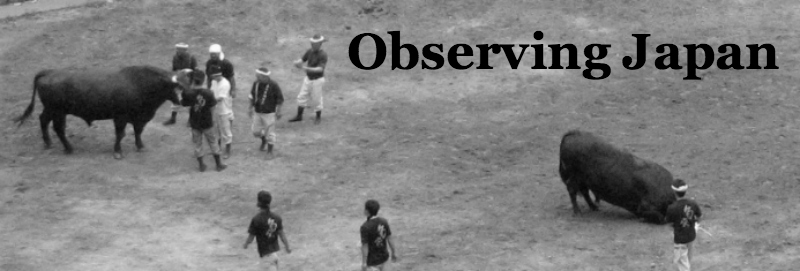In the wake of Koizumi Junichiro's landslide election victory in 2005, the Economist published a survey on Japan under the headline "The Sun Also Rises," complete with a cover photo over the sun shining over Mt. Fuji.
The Economist was hardly alone in proclaiming that the Koizumi era marked the beginning of a new, optimistic era after the woe of the lost decade. If Koizumi was the face of a more politically assertive Japan, Toyota's rise was a symbol that despite economic stagnation, Japan's leading corporations could still compete globally, and in Toyota's case, best all challengers and set the industry's gold standard for production methods.
But just as many of Koizumi's reforms proved illusory once he left office, so too does Toyota's fall — with Toyoda Akio, its president and CEO, being raked over the coals in Washington — suggest that there was far less to the "Japan is back" meme than met the eye. That's not to say that Toyota's achievements weren't real; it's hard to argue with sales figures. But the idea that Toyota could be a twenty-first century national champion, symbol of a vibrant Japan, has been demolished. It seems that Toyota was plagued by the same pathologies that have plagued other industrial sectors and the public sector.
Patrick Cronin, writing at Foreign Policy's website, suggests that the Toyota debacle could be a blow to Japan's soft power. Maybe so, but in some way the scandal may simply reinforce the DPJ's message that the rot — which apparently left no corner of Japanese society untouched — which characterized the latter years of LDP rule needs to be swept away. In short, this scandal reinforces the idea that there are no shortcuts to recovery. As Peter Tasker argued in the Financial Times last week, the idea that Japan could continue to prosper on the back of exporters like Toyota has been punctured, making this scandal an opportunity for the DPJ to make its case that Japan needs to move away from export-led growth.
The Economist was hardly alone in proclaiming that the Koizumi era marked the beginning of a new, optimistic era after the woe of the lost decade. If Koizumi was the face of a more politically assertive Japan, Toyota's rise was a symbol that despite economic stagnation, Japan's leading corporations could still compete globally, and in Toyota's case, best all challengers and set the industry's gold standard for production methods.
But just as many of Koizumi's reforms proved illusory once he left office, so too does Toyota's fall — with Toyoda Akio, its president and CEO, being raked over the coals in Washington — suggest that there was far less to the "Japan is back" meme than met the eye. That's not to say that Toyota's achievements weren't real; it's hard to argue with sales figures. But the idea that Toyota could be a twenty-first century national champion, symbol of a vibrant Japan, has been demolished. It seems that Toyota was plagued by the same pathologies that have plagued other industrial sectors and the public sector.
Patrick Cronin, writing at Foreign Policy's website, suggests that the Toyota debacle could be a blow to Japan's soft power. Maybe so, but in some way the scandal may simply reinforce the DPJ's message that the rot — which apparently left no corner of Japanese society untouched — which characterized the latter years of LDP rule needs to be swept away. In short, this scandal reinforces the idea that there are no shortcuts to recovery. As Peter Tasker argued in the Financial Times last week, the idea that Japan could continue to prosper on the back of exporters like Toyota has been punctured, making this scandal an opportunity for the DPJ to make its case that Japan needs to move away from export-led growth.
